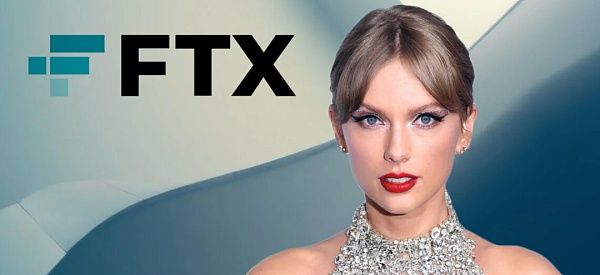Leading encryption companies, DeFi organizations, and financial technology how to build different communities
Foreword: DeFi is a new stage of financial development. It is still developing very early, but it will have a major impact on future finance. In terms of community involvement, how is it different from traditional banking and financial technology? What are its strengths and weaknesses? The author of this article is Steven Ehrlich, translated by the "Blue Fox Notes" community "Leo".
As the CEO of the non-profit Wall Street Blockchain Alliance, I am interested in new trends in encryption, such as DeFi (Distributed Finance, or Decentralized Finance), and want to know how their creators and operators are. Build a strong stakeholder community. With hundreds of people spanning all aspects of financial services, DeFi will have a major impact on our organization's work in 2019 and beyond.
Although there is currently no uniform definition of DeFi, the term is often used to build traditional financial applications and services on the blockchain, such as payment methods, storage accounts, lending products, wealth management, and more. DeFi offers a number of use cases, such as allowing participants to make instant transfers around the clock (24/7/365) worldwide, or earning interest by holding encrypted assets because many participants are trying to base on blockchains. Lay the foundation for a diverse financial system.
At the same time, although blockchain technology and its attractive ideology are a huge incentive for users who are dissatisfied with the current financial system, the decentralization that encourages users to enter the DeFi world may actually limit it. The long-term potential of some platforms.
- M*V = P*Q does not apply to the valuation of cryptocurrency
- Read the classic design model of the centralized exchange
- Tobacco pledge economics 丨 Investigate the deficiencies and changes brought about by working tokens
Why is this happening? Because DeFi-based products naturally limit the touch points and interactions between customers and product providers, which can result in reduced product loyalty and cross-selling capabilities. (Blue Fox Note: This is not easy to say, because after all, it is still in the early stage, may be because of the user's independent participation, and has a better user experience, is it more brand loyalty? This is also observed.)
To further investigate this issue, I spoke with two DeFi-related blockchain leaders, one is BlockFi CEO Zac Prince, and the other is MakerDAO's Foundation Chairman and COO Steven Becker. The overall impression of the discussion is as follows:
- DeFi is keenly aware that traditional banking and financial technology companies are trying to create customer loyalty and reach out to their customer base. DeFi is actively researching these models and trying to determine how to apply these strategies to their models.
- The DeFi community is far from a single one and each project should be evaluated independently.
- The future success of many products and services will depend on the importance of decentralization to individuals, especially if there is a visible trade-off between decentralization and customer value.
- Pure decentralized organizations and products are often not as fast or as fast as mixed or centralized companies, but they also operate in different time frames.
Financial technology challenges
This is a very important discussion today, as the cryptocurrency sector is actively competing with well-known startups such as PayPal, Square, SoFi (short for social finance), which offer easy-to-use products and have accumulated a large number of customers. group.
Further, these companies now even offer cryptocurrency trading services. SoFi pays particular attention to this discussion, as its name suggests, and its name suggests that it places great emphasis on building brand loyalty and interaction with the customer base.
According to a recent interview with Cheddar, SoFi CEO Anthony Noto emphasized that 2019 will focus on the social aspects of its member products. According to Noto: “We provide members with more than just tangible financial products… we also provide them with free career advice, free certified financial advice, membership activities, etc. We will continue to increase More intangible services allow users to better manage their finances in the next year."
Blockchain response – BlockFi
BlockFi's goal is to take advantage of the variants of the SoFi script, in the words of BlockFi CEO Zac Prince, "Successfully implement this strategy, which is ideal for providing as many value products as possible to your customer base, and then trying to create a They are very close relationships.” However, BlockFi is implementing this based on the blockchain technology stack.
This is a very clear strategy for Mr. Prince because he used to be a SoFi customer. When he talked to me, he told a story. When he first registered the service, SoFi gave him a bottle of wine and some cheese, which he shared with his wife. He remembers that he made him feel "this is a different financial company" and that "I have a stronger positive sentiment towards their brands than other financial companies."
To build the same positive feelings about BlockFi, the company has actively interacted with customers and the wider community through chat tools on its website and on social media (Telegram, Twitter, Reddti, etc.). It also publishes quarterly customer surveys and regularly meets with customers in major US cities. BlockFi does not currently pay too much attention to cross-customer communication, but this is something the company will consider in the future.
However, the most interesting part of discussing with Mr. Prince is that although BlockFi is often referred to as DeFi, he does not consider it a company. When asked why, he pointed out:
“We don’t think we’re working hard, of course, we’re not doing anything in the decentralized construction at this stage. We believe that having a traditional corporate structure will be more about raising funds, adjusting incentives, and hiring people who know what to do. it is good."
He also pointed out that the centralized approach provides the ability to handle things quickly, such as the rapid iteration of new products, even in beta form, which is difficult to achieve efficiently for platforms that run entirely on smart contracts and have little room for error.
Mr. Prince further elaborated on the reasons behind this idea. He disagreed with the statement that decentralization would become the main driver for customers in the long run. He said:
"I don't think most people, as long as you use a random sample of 100 people, not many people focus on decentralization… If we believe that there will be another wave of adoption in the encryption industry, I think the new entrant Most people may not pay much attention to or pay less attention to the decentralization factor, but pay more attention to the part of the value proposition."
Blockchain response – MakerDAO
Compared to BlockFi, MakerDAO is often considered a model of the DeFi movement. In discussions with MakerDAO Foundation Chairman and COO Steven Becker, he is convinced that the decentralized nature of the platform will not only attract new users, but also create a diverse, robust, sticky, stakeholder-involved community. Will ensure its long-term success.
My discussion with Mr. Becker produced three main topics:
First, although decentralized systems have a slower nature, they are more powerful and more participatory because they are highly transparent in terms of risk and operations. He compared the settings of MakerDao and French currency to support stable coins, which grew faster but were opaque, making it difficult for customers to really understand their operation.
Second, the DeFi platform embeds social benefits in its DNA, and in the long run, they are more attractive to customers. Specifically, Mr. Becker pointed out:
“There is a huge difference between social finance and decentralized finance. In short, social finance attempts to extract or attempt to pull social influences, and in this respect, decentralized finance is in fact a very favorable position. Promote this impact."
Third, when discussing community involvement, Mr. Becker made it clear that he believes that stakeholder engagement has been strong so far, with stakeholders including MKR's governing token holder, Dai's holder, Market makers, CDP creators, etc., but still have a long way to go. He emphasized that these stakeholders are now too focused on specific use cases. For example, CDP users are often interested in lending Dai to a larger note on the encryption market, and Dai holders often act as liquidity providers.
Looking ahead, he hopes to “make these different categories of stakeholders very diverse, I mean, consider their use in the system. The more diverse the Dai holders, the more diverse we are. The use scenario. The same is true for MKR token holders. The more diverse the MKR token holders, the more diverse the incentives they have. As an example, he wants to see the greater participation of Dai holders. So that holders can use Dai stable currency for more daily transactions.
Hope and expectation is that once supply and demand are balanced, this new level of participation will emerge and stability need not be adjusted often or significantly. At this point, there are other forms of risk that need to be discussed at the weekly risk and governance call, which is to make the stakeholder group more diverse and engage them. These include the CDP risk (which allows people to borrow other forms of assets in addition to ETH to borrow Dai), and what he usually calls exogenous risks. Mr. Becker said:
“There will always be new themes that will take up the thinking of that period. It’s just the cost of stability.”
Finally, he acknowledged that by design, the MakerDAO community may have an amorphous factor. Obviously, the future of MakerDAO is not in the hands of the Foundation, but in the hands of the community and its many stakeholders. There may be nothing more representative of Mr. Becker's answer to my questions below. My question is: Is MakerDAO interested in following the famous model created by Munich's Fidor Bank, which has a very active stakeholder network. He says,
“All the model frameworks, all the considerations will be put on the table to discuss… We actually get the lead from the community. Now, there are so many models to consider, it feels a little overwhelmed, but it makes We have a good understanding of how people expect to be involved in the system and how they want to contribute."
Conclusion
It is clear from these discussions that there is no universal approach to building a community of participation in the DeFi and blockchain ecosystems, but community involvement is a priority for leaders in this space. This is especially true given the competition from traditional financial technology. Key people and stakeholders need to make decisions about the level of concentration they are satisfied with, and ultimately weigh the advantages of speed and new product iterations, as well as opacity and the need to trust third parties.
——
Risk Warning: All articles in Blue Fox Notes do not constitute investment recommendations . Investment is risky . Investment should consider individual risk tolerance . It is recommended to conduct in-depth inspections of the project and carefully make your own investment decisions.
We will continue to update Blocking; if you have any questions or suggestions, please contact us!
Was this article helpful?
93 out of 132 found this helpful
Related articles
- Getting started with blockchain | How much does it cost for Nakamoto to dig bitcoin for the first time?
- With an annual salary of $240,000, the SEC needs a cryptocurrency financial analyst
- Babbitt Column | Cai Weide: 2018 US Edition "Unified Weights and Measures" – Chain Network Medicine Supply Chain Management
- Twitter Featured: The largest brokerage in the US to test bitcoin spot trading; Samsung plans to develop blockchain main network
- If the currency circle is an "Avengers League," who will be the tyrant?
- Randomness on the blockchain (II) project analysis
- BAP-2: The first UTXO-based asset standard




